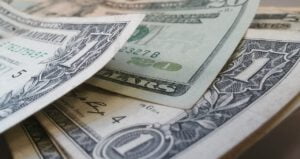By Anna Peel. Originally published at ValueWalk.

Enough To Suffice In Case Of An Emergency & So You Won’t Be Forced To Sell Any Investments During A Volatile Stock Market, Says CFP/CPA Expert
According to Howard Hook, CFP, CPA, a senior advisor with the wealth management firm of EKS Associates in Princeton, NJ, you want sufficient liquidity for two reasons: in case of an emergency and so you won’t be forced to sell any investments during a volatile stock market.
Q1 2022 hedge fund letters, conferences and more
Generally speaking, he believes investors should have at least six months’ worth of living expenses readily available as cash, or in a bank, savings or brokerage account that is immediately available.
Availability Of Cash
“On top of that, we recommend that clients have at least three years of cash needs sitting inside that brokerage account – not necessarily in cash per se, but a combination of cash, short-term bond funds, or CDs,” he says. “This means the client will not have to sell any stock market investments at a significant loss in a declining market.”
He also suggests that clients acquire a home equity line of credit so they can write checks off of it in a pinch. “That’s another way to get some liquidity if you don’t have cash set aside,” he says.
He recently spoke to a client who needed $5,000 a month from his portfolio to supplement the cost of an assisted living facility for his elderly mother. “We suggested that, at $60,000 a year, he set aside $180,000 in cash and short-term fixed income for three years’ worth of cash needs. We left the first $60K in a money market, to give him what he needed in order to dole out the $5,000 a month. The next $60,000 was put in a CD that matures 12 months from now and the other $60K in a short-term bond fund that matures 24 months from now.”
This, he says, times the need for available cash with the maturity of the investment. It gives the client the confidence in knowing when he looks at his brokerage account that he has a bond or CD maturing in a certain number of months to replenish his cash needs. This also provides more of a return than parking the $180K in cash or in a savings account where it builds little interest.
Updated on
Sign up for ValueWalk’s free newsletter here.



